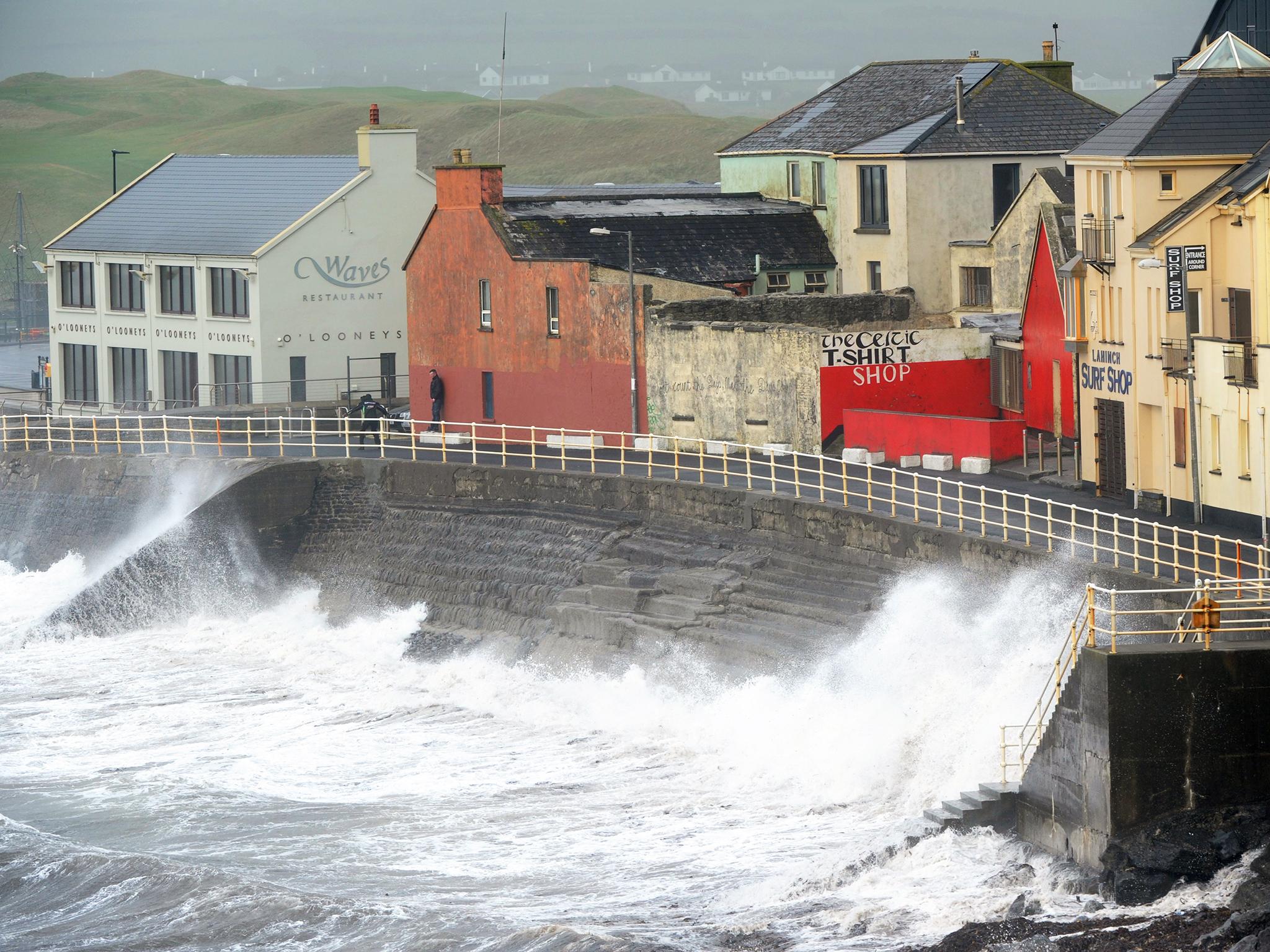Ophelia: Storm kills three people as high winds wreak havoc across Ireland and UK
People urged to stay indoors following fatalities

Three people have been killed in Ireland as ex-hurricane Ophelia swept through the country at speeds of up to 96mph, downing trees, ripping off rooftops and causing widespread disruption.
Hundreds of thousands of people lost power and government offices, infrastructure, schools and workplaces were closed, as forecasters warned of “potential danger to life”.
Ireland’s weather service, Met Eireann, described the storm as the most powerful on record to have ever been so far east in the Atlantic, and there was also heavy weather in western parts of the UK.
North Wales saw 90mph gusts, and in Northern Ireland, they reached 71mph. Wigtownshire, south-west Scotland, recorded 73mph winds and the highest wind speed in England was 62mph in Crosby, Merseyside.
Ophelia’s ferocity was highlighted by several fatalities. An unnamed man whose car was struck by a tree in Ravensdale, Co Louth, died mid-afternoon on Monday.

Earlier in the day, a woman in her fifties was also killed by a tree falling on her car near Aglish village in Co Waterford, and her passenger was injured.
Another man in Cahir, Co Tipperary, was killed in a chainsaw accident as he tried to remove a tree downed by the storm.
Local police warned people to stay of the roads and not to travel unless absolutely necessary.
Taoiseach Leo Varadkar echoed the sentiments of the Garda, saying: “The advice is: stay indoors until the storm passes.
“Whether that is at work, in their home or some other home, stay indoors. Check on neighbours and relatives.
“Bear in mind it is coming your way and it is a national red alert. It is a very dangerous storm.”
Prime Minister Theresa May spoke to Mr Varadkar on Monday afternoon to offer support to the areas affected.
“On Storm Ophelia, the Prime Minister expressed her sympathies for the loss of life and said the UK Government stood ready to provide any support if requested,” a Downing Street spokesman said.
In the affected towns and villages, residents posted videos of rooftops blowing off of buildings on social media.
The Cork City football stadium, Turner’s Cross, also lost its roof in the high winds. Dublin airport saw 130 flights cancelled.
Ophelia did not hit Ireland head-on as feared, but instead travelled up the south-west coast into Northern Ireland and Scotland.
But the effects were still significant and the sea breached defences in Salthill, Galway, and waves of up to 10 metres were observed elsewhere.
There were also flood warnings in place in Wales, along the western Pembrokeshire coast and parts of West Scotland, North-west England, Cornwall and Dorset.
Around 200 homes in Wales also lost power and some schools were closed. Authorities in Pembrokeshire also closed the Cleddau Bridge to high-sided vehicles.
England escaped the severe effects that Ophelia brought to Ireland, but across the country, the sky was tinted orange as warm winds dragged in dust from the Sahara.
Some UK flights were also diverted after “smoke smells” were reported on board. Carriers said they believed the smells were related to the unusual atmospheric conditions engulfing the country.
The planes were said to have been diverted just as a precautionary measure.
Met weather spokesman Grahame Madge said Ophelia will be “gradually easing up into Scotland overnight and into Tuesday morning, it’s weakening as it goes”.
He added: “Parts of England, areas like the North-west, are covered by a warning. The impacts will be felt in northern England into Tuesday.”
Additional reporting by agencies.
Join our commenting forum
Join thought-provoking conversations, follow other Independent readers and see their replies
Comments
Bookmark popover
Removed from bookmarks